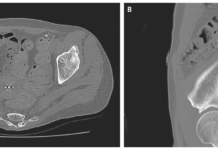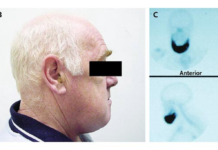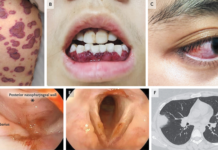Metastatic colorectal cancer is treated through oxaliplatin-based chemotherapy. It also represents the standard of care in its treatment. The case reported in this article is of fulminant oxaliplatin-induced thrombotic microangiopathy. It suggested hemolytic–uremic syndrome clinically. Moreover, the patient was a female with a chronic history of oxaliplatin exposure for treating metastatic colon cancer.
Case Presentation
A 73-year-old Caucasian female who has never been a smoker, with a past medical history of hypertension was diagnosed with stage IV colon adenocarcinoma. In addition to liver metastasis. Moreover, she went through several lines of chemotherapy for managing her metastatic colon cancer with oxaliplatin, fluorouracil, bevacizumab, and leucovorin for the progression of the disease.
The patient presented to the ER with a complaint of malaise, vomiting, headache, and decreased output of urine. All the symptoms appeared after a few hours of undergoing chemotherapy. Her clinical findings and laboratory findings were all suggestive of thrombotic microangiopathy. Additionally with a triad of microangiopathic hemolytic anaemia, pronounced thrombocytopenia, and acute renal failure.
Furthermore, the predominance of severe renal failure was suggestive of a hemolytic uremic syndrome. Thrombotic microangiopathy’s rapid development had a link with exposure to oxaliplatin. The doctors immediately managed the patient with plasma exchange on a daily. Additionally, a high dose of corticosteroids, platelets, and red blood cell transfusion was done. This was done in a combination of intermittent hemodialysis. She went through a progressive recovery.
Conclusion
Conclusively, this case report confirms the risk of a hemolytic–uremic syndrome in a patient suffering from metastatic colon cancer. It is a fatal complication of oxaliplatin-based chemotherapy. Therefore, based on the case, it is suggested that it is a dose-dependent, drug-induced, toxicity mechanism. However, other unknown factors, tumour histology, and immune memory could also be the factors behind it. Due to this, physicians need to be suspicious at a high level. Especially with patients who have a history of long exposure to oxaliplatin for a prompt diagnosis of this fatal condition.




